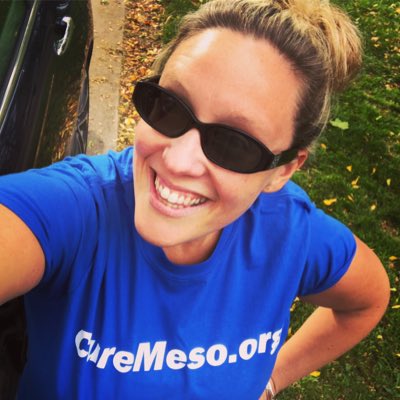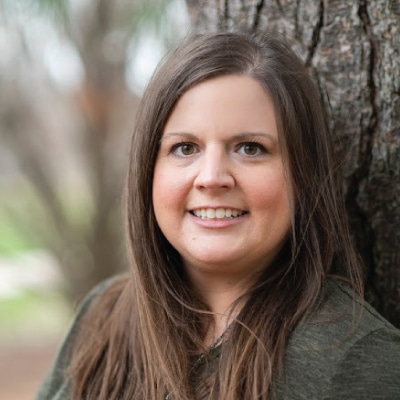The Congressionally Directed Medical Research Programs’ (CDMPR), Peer Reviewed Cancer Research Program (PRCRP) consumer advocates Katie Jamieson and Jessica Blackford-Cleeton recently participated in the evaluation of research applications submitted to the PRCRP. Katie and Jessica were nominated for participation in the program by the Mesothelioma Applied Research Foundation. As consumer reviewers, they were a full voting member, along with prominent scientists, at meetings to help determine how the $110 million appropriated by Congress for Fiscal Year 2020 will be spent on cancer research.
Consumer reviewers are asked to represent the collective view of patients by preparing comments on the impact of the research on issues such as diagnosis, treatment, and quality of life.

Katie Jamieson 
Jessica Blackford-Cleeton
Consumer advocates and scientists have worked together in this unique partnership to evaluate the merit of research applications since FY09. COL Sarah B. Goldman, Director of the CDMRP, expressed her appreciation for the consumer advocates’ hard work. “Integrating consumer perspectives into our decision-making process brings energy and focus to our research programs. Patients, caregivers, family members, and advocates help us keep our efforts centers around what is truly important to those impacted. We very much value this critical input from our consumers who help ensure the CDMRP’s work remains critical and relevant,” she said.
Scientists applying propose to support and promote high-impact research for cancer prevention, detection, treatment, quality of life and survivorship, and decreasing the burden of cancer on service members, their families and the American public. The PRCRP fills important gaps not addressed by other funding agencies by supporting groundbreaking research while encouraging out-of-the-box thinking.
More information about the CDMRP’s PRCRP is available at cdmrp.army.mil/prcrp/default.
The Mesothelioma Applied Research Foundation is the only 501(c)(3) nonprofit organization working to eradicate mesothelioma and end this national tragedy. Its programs include the funding of promising and peer-reviewed research, education, support and advocacy. The organization strives to bring together thought-leaders in the field to identify the most direct path to a cure.






